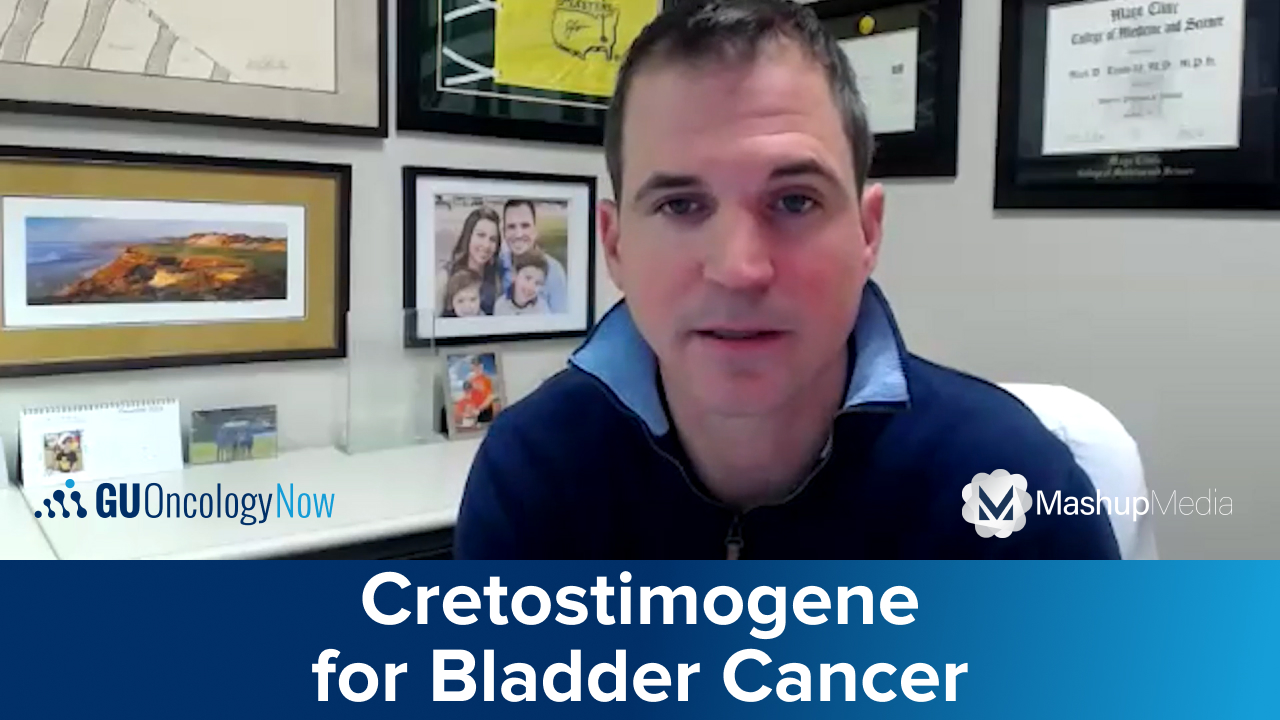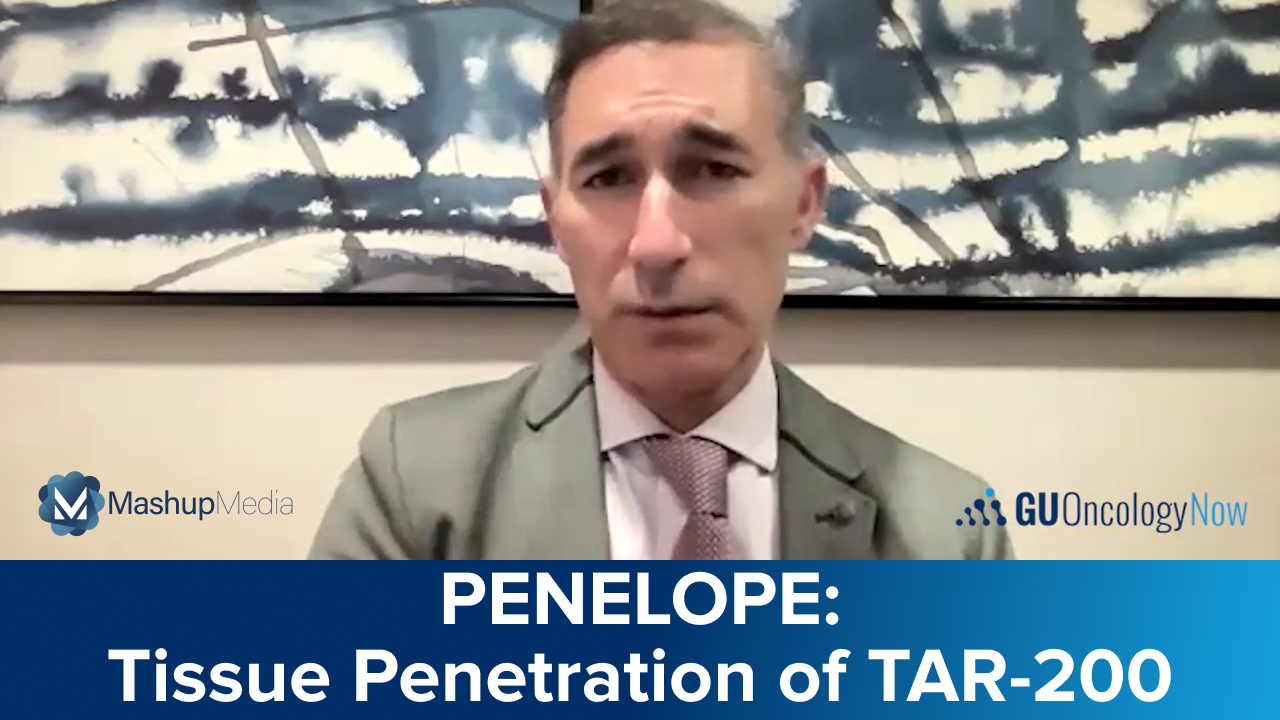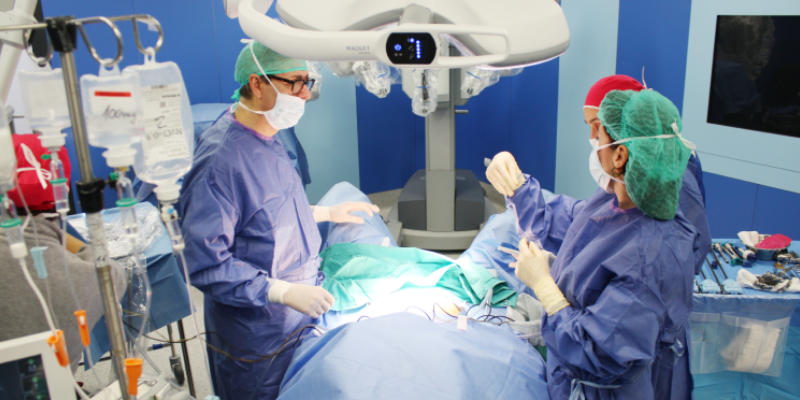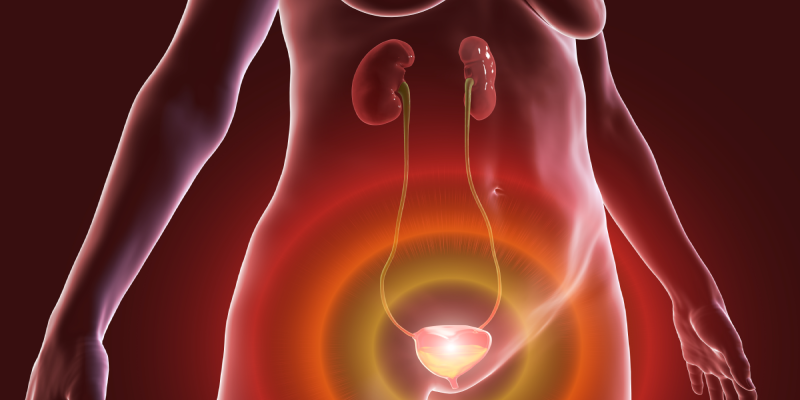
SUO 2024
Advertisement
Dr. Dan Joyce discusses key SUO studies on RCC prognostics, personalized medicine, and advancements in treatment strategies.
Dr. Tyson shares insights on the potential role of cretostimogene in treating BCG-unresponsive NMIBC, based on BOND-003 data.
Dr. Tyson reviews the findings from Cohort P of the BOND-003 trial on cretostimogene grenadenorepvec for NMIBC.
Drs. Nizam and Packiam review the findings from a study on AI-powered biomarkers to aid NMIBC diagnosis and treatment.
Dr. Shuch shares the key points from his presentation on advancements in molecular imaging for RCC from SUO 2024.
Dr. Daneshmand discusses the impressive complete response rate and durability of TAR-200 monotherapy for NMIBC.
In the PENELOPE study, TAR-200 showed greater tissue penetration of gemcitabine compared to standard intravesical therapy.
The panelists share their insights on risk assessment, and customized treatment strategies for high-risk NMIBC.
The panelists discuss the evolving landscape of bladder cancer treatments, focusing on balancing bladder-sparing therapies.
The panelists debate the potential of combining intravesical immunotherapy with immune checkpoint inhibitors.
The panelists share their perspectives on SunRISe-1 and the evolving role of TAR-200 in treating BCG-unresponsive UC.
Treatment Options for BCG-Unresponsive NMIBC: Balancing Efficacy, Logistics, and Patient Preferences
The second segment of this roundtable focuses on the evolving landscape of treatments for BCG-unresponsive bladder cancer.Standard risk assessment plus genomic classification for prostate cancer surveillance helps predict disease progression.
Part one of this roundtable highlights current practices, emerging therapies, and the future landscape of NMIBC care.
Dr. Christopher Cutie shares his thoughts on the potential of TAR-200 to redefine care for BCG-unresponsive, HR NMIBC.
Dr. Christopher Cutie describes the innovative TAR-200 system and its role in providing sustained intravesical drug delivery.
Radical prostatectomy with pelvic lymph node dissection increases risks of complications like DVT and lymphatic leaks.
Higher PSMA expression in non-metastatic ccRCC correlates with improved progression-free survival, study shows.
Results of the phase III BOND-003 trial show groundbreaking results of cretostimogene grenadenorepvec for NMIBC.
Treatment With Investigational TAR-200 Demonstrates Promising Results With BCG-Unresponsive HR NMIBC
TAR-200 monotherapy is well tolerated and shows promising efficacy in treating HR NMIBC, according to data from SunRISe-1. 




















 © 2025 Mashup Media, LLC, a Formedics Property. All Rights Reserved.
© 2025 Mashup Media, LLC, a Formedics Property. All Rights Reserved.